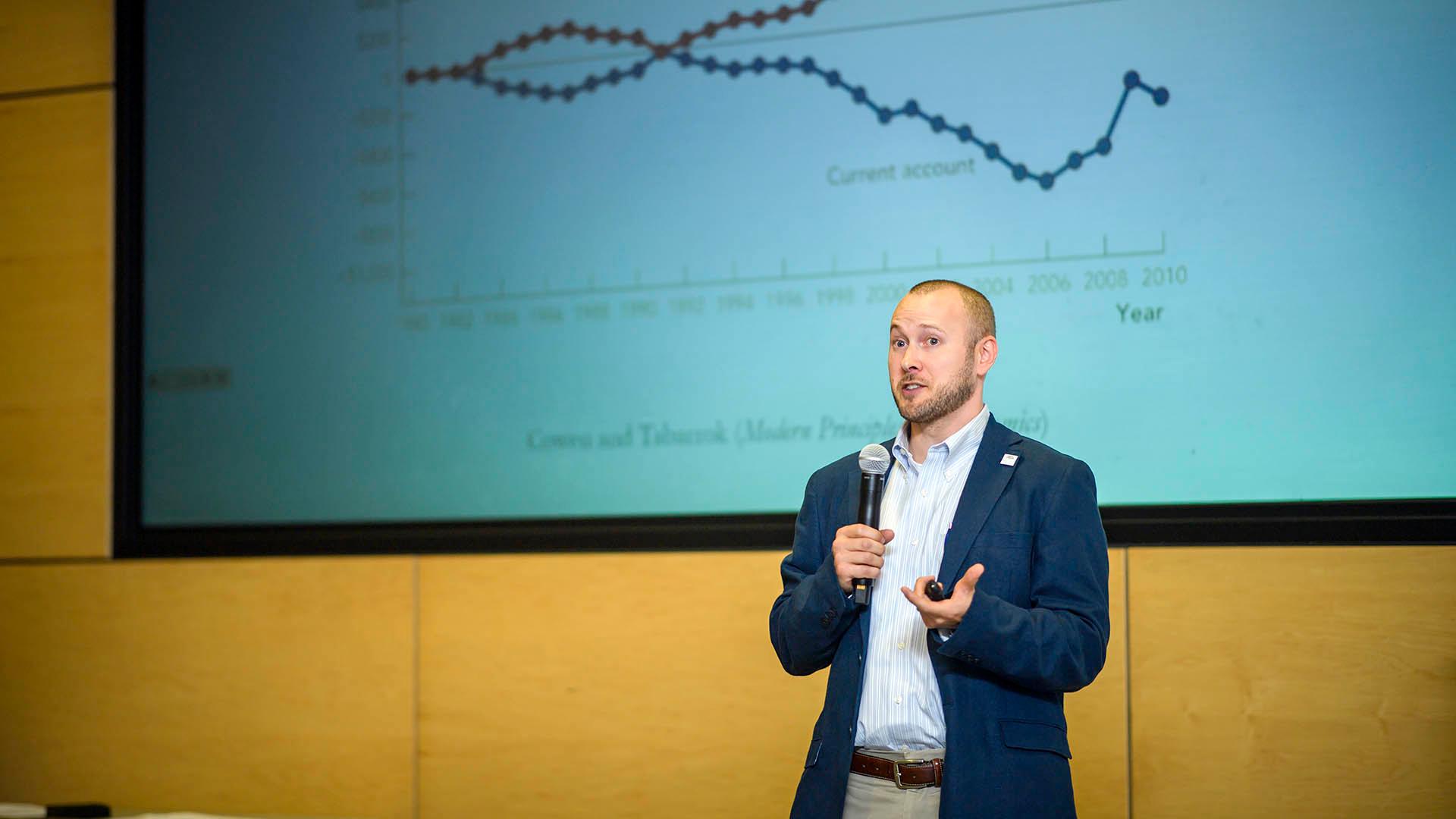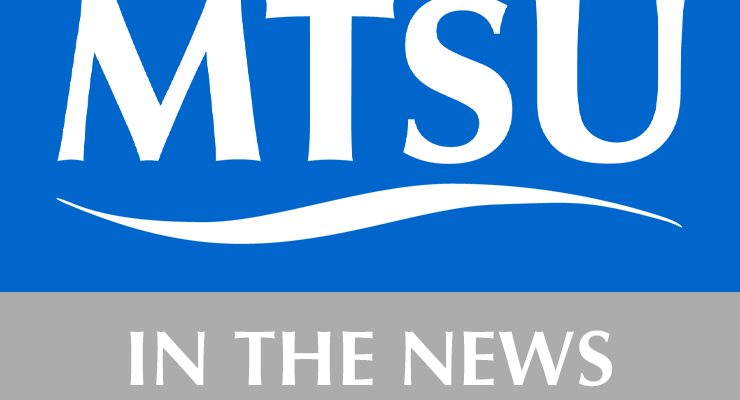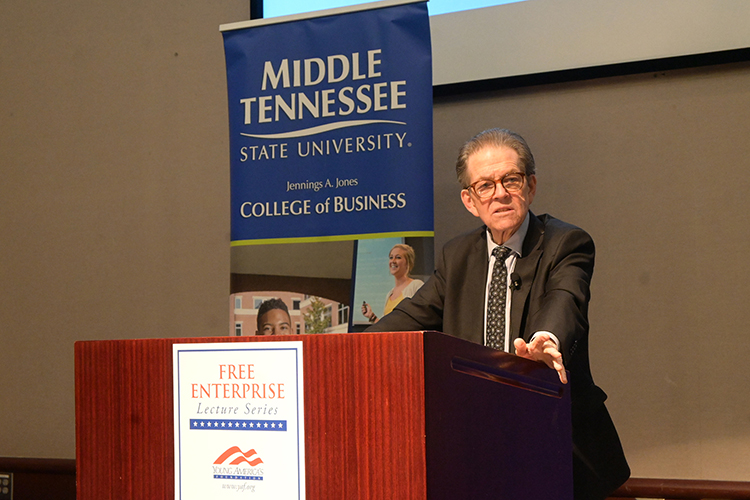
Economics
Economics touches on societal issues, such as poverty and gender, and many students go on to careers in public service or law.
Economics, B.S.
Students desiring a more flexible program than outlined in the B.B.A. degree in Economics may elect to pursue a B.S. degree in Economics. Candidates for this degree are not required to complete the Jennings A. Jones College of Business requirements, but they must meet the specific B.S. degree requirements listed in this catalog (Academic Policies and Procedures).
Any student electing the B.S. alternative should consult directly with the department chair to develop an acceptable degree program. This degree is offered through the College of Liberal Arts and is not considered a degree in business administration. A maximum of 25 percent of courses for a B.S. degree in Economics can be taken in business courses. Students must complete at least one minor.
News Briefs

In the News: MTSU faculty talk budgeting, air travel, dyslexia, equine program, more
Middle Tennessee State University faculty and staff recently provided the media with their perspectives on various issues, including tips on budgeting and air travel, dyslexia and the equine program.[ Read More ]

Former presidential economic adviser Laffer talks trade, tariffs, ‘facts’ in MTSU guest lecture
Former presidential economic adviser Arthur Laffer visited Middle Tennessee State University recently to discuss the economic landscape produced by the Trump administration and questions surrounding its economic strategies.[ Read More ]
News Briefs

In the News: MTSU faculty talk budgeting, air travel, dyslexia, equine program, more
Middle Tennessee State University faculty and staff recently provided the media with their perspectives on various issues, including tips on budgeting and air travel, dyslexia and the equine program.[ Read More ]

Former presidential economic adviser Laffer talks trade, tariffs, ‘facts’ in MTSU guest lecture
Former presidential economic adviser Arthur Laffer visited Middle Tennessee State University recently to discuss the economic landscape produced by the Trump administration and questions surrounding its economic strategies.[ Read More ]
Related Media

Economics, B.S.
Students who major in Economics can seek work in the field of microeconomics, which focuses on individual firms and consumers, and macroeconomics, which analyzes national income and growth. Career opportunities are available in the following general areas:
- Banking
- Consulting
- Government
- Higher education
- Insurance
- Law
- Manufacturing
Employers of MTSU Bachelor of Economics alumni include:
- Belmont University
- Federal Reserve
- FedEx
- Franklin Synergy
- J.P. Morgan Chase
- Merrill-Lynch
- Pricewaterhouse Coopers
- Regional Economic Models Inc.
- Reliant Bank
- TennCare
- Tennessee Advisory Commission on Intergovernmental Relations
- U.S. departments of Commerce, Defense, Labor, and State

MTSU’s Career Development Center
MTSU offers a comprehensive Career Development Center that serves students throughout the full student experience and beyond. They collaborate with faculty and staff to equip students with the tools to be marketable to the world of work and continuing education.
Students can schedule an appointment or check online resources and job boards at mtsu.edu/career.
Students can find current internship opportunities by talking to faculty and visiting the University job and internship board called Handshake.
Wondering what you can do with your major? Check out our What Can I Do with A Major In guides.



CONTACT US












